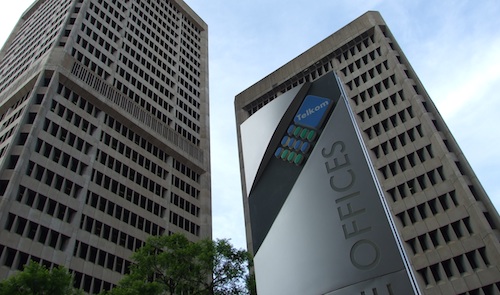
James Hodge of Genesis Analytics has painted a stark picture of wide-ranging anticompetitive abuses, including excessive pricing and price discrimination, allegedly committed by Telkom in the last decade.
Hodge is presenting this week to the Competition Tribunal in its hearings into alleged anticompetitive behaviour by Telkom. Genesis Analytics has been engaged by the Competition Commission to provide an economic assessment of the allegations raised by the commission against Telkom.
The commission wants the tribunal to impose a fine of 10% of Telkom’s 2003 revenue, which equates to more than R3,5bn, for alleged abuses of its dominant position in telecommunications in SA.
In a formal submission by Genesis, the company says value-added network service (Vans) players — these were independent Internet and telecoms service providers — were “completely dependent on Telkom for the provision of telecoms facilities”.
Telkom stands accused of price discrimination and engaging in “exclusionary strategies”, including the refusal to supply essential facilities as well as conduct designed to induce customers not to deal with competitors. “These actions, both individually and collectively, impacted negatively on competition,” Genesis says.
According to the report, Telkom’s pricing of access to telecoms facility to Vans providers and their customers “can reasonably be characterised as excessive [and] in contravention of … the Competition Act”.
Genesis assessed whether Telkom’s practice of charging its customers a lower price for Diginet access relative to what was charged to Vans providers and their customers constituted prohibited price discrimination. It found it did and says this had the effect of “substantially lessening and preventing competition”.
Telkom’s pricing conduct could also be characterised as “exclusionary”.
“The effect of Telkom’s discriminatory pricing strategy is that it placed the independent Vans providers at a severe competitive disadvantage vis-à-vis Telkom in the downstream Vans market,” the report says.
“The independent Vans providers were all saddled with significantly higher access fees, which negatively impacted on their ability to compete against Telkom in the provision of Vans”.
Telkom also engaged in a “range of exclusionary strategies involving the refusal to supply essential facilities as well as conduct designed to induce customers not to deal with competitors”.
The report finds that protections given to Telkom in law were not as broad as those the company sought to impose through standard form contracts. It says further that Telkom’s refusal to supply additional telecoms links to Vans providers contributed to them being less effective competitors.
“Considered collectively, the numerous strategies employed by Telkom made it increasingly difficult for the Vans providers to compete against Telkom,” Genesis says in its report.
“By artificially reducing the competitiveness of independent Vans providers through the application of discriminatory access charges and through engaging in a number of exclusionary strategies, Telkom was able to enhance its share of the downstream Vans market at the expense of its competitors.”
Also, Telkom‘s conduct “not only hindered the ability of its competitors to compete in the market, it also formed the basis for the decision of a large Vans provider to effectively exit the market, contributed to the decision of another Vans provider to suspend the provision of [virtual private network] services for a number of years and discouraged further investments by competitors.”
Telkom is expected to begin arguing its case before the tribunal from 1 December. — Duncan McLeod, TechCentral
- Subscribe to our free daily newsletter
- Follow us on Twitter or on Facebook
- Visit our sister website, SportsCentral (still in beta)




